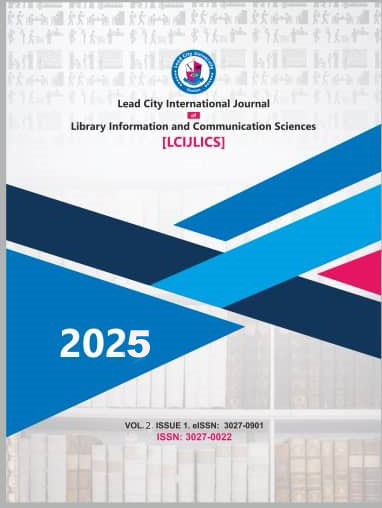ARTIFICIAL INTELLIGENCE INTEGRATION AND ITS PERCEIVED IMPACT ON THE ACADEMIC DEVELOPMENT OF UNDERGRADUATE LIBRARY STUDENTS
DOI:
https://doi.org/10.63741/Keywords:
Artificial Intelligence, Undergraduate, Academic development, Library StudentsAbstract
Artificial Intelligence (AI) in higher education is reshaping instructional methods and academic
development, especially for undergraduate library students. This study investigates the perceived
impact of AI tools on the academic development of library students across 11 Nigerian
universities spanning four geopolitical zones. A descriptive survey design was used; data were
collected from 276 respondents using questionnaires and analyzed with SPSS. Findings reveal a
high level of AI awareness (95%) and usage, with tools like ChatGPT, Google Bard, and
Grammarly being the most commonly used. Students primarily employ AI for research, writing,
and studying, and report improvements in assignment completion speed, content quality, and
comprehension of complex topics. However, concerns remain about overdependence on AI and
limited use for exam preparation. Challenges hindering effective use include high data costs,
poor digital skills, unreliable internet, and power supply issues. Despite these barriers, students
generally hold positive attitudes toward AI’s role in education. The study concludes that while
AI presents significant opportunities to enhance academic development in Nigerian higher
education, addressing infrastructural, educational, and ethical challenges is inevitable.
Recommendations include training programs, infrastructural investment, policy development,
and responsible AI integration strategies.

